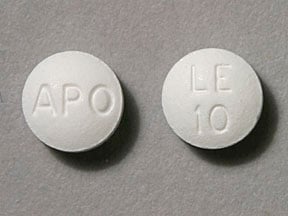
Leflunomide Coupons & Savings Card – Discount Prices from $18.45
Generic for: Arava
My prescription
Edit
10MG, Leflunomide (30 Tablets)
Select pharmacy

CVS
$20.73
COUPON PRICE
Walgreens
$18.45
COUPON PRICE
Albertsons
$23.36
COUPON PRICE
Walmart
$143.47
COUPON PRICEFree Leflunomide Savings Card

Walgreens
$18.45
Show this coupon to your pharmacist
ID
LH1719BA70
PCN
CHIPPO
BIN
019876
GRP
LHX
This coupon is not insurance
More prescriptions for rheumatoid arthritis
More prescriptions for rheumatoid arthritis
Leflunomide dosage forms
Dosage Quantity Price from Per unit 10MG 30 Tablets $18.45 $0.61 10MG 60 Tablets $23.46 $0.39 10MG 90 Tablets $26.19 $0.29 20MG 30 Tablets $18.30 $0.61 20MG 60 Tablets $24.54 $0.41 20MG 90 Tablets $27.81 $0.31
| Dosage | Quantity | Price from | Per unit |
|---|---|---|---|
| 10MG | 30 Tablets | $18.45 | $0.61 |
| 10MG | 60 Tablets | $23.46 | $0.39 |
| 10MG | 90 Tablets | $26.19 | $0.29 |
| 20MG | 30 Tablets | $18.30 | $0.61 |
| 20MG | 60 Tablets | $24.54 | $0.41 |
| 20MG | 90 Tablets | $27.81 | $0.31 |
Leflunomide Warnings
The use of Leflunomide (Arava) is accompanied by important safety considerations and warnings. Patients and healthcare providers should pay careful attention to the following information to ensure safe and effective use:
Pregnancy Risks: Leflunomide is contraindicated during pregnancy due to the risk of severe harm or potentially fatal effects to the unborn baby. Women of childbearing potential must undergo a negative pregnancy test before initiating treatment and use reliable contraception during and after treatment until the drug is effectively cleared from the body. If pregnancy is suspected, immediate medical consultation is required.
Liver Concerns: This medication can cause serious liver damage, sometimes necessitating a liver transplant. Patients with existing liver conditions, such as hepatitis B or C, should avoid leflunomide. Regular liver function tests are recommended. Symptoms that require urgent medical attention include persistent nausea, vomiting, dark urine, light-colored stools, abdominal pain, or yellowing of the skin or eyes.
Infection Risks: Leflunomide may impair the immune system, increasing the risk of serious infections. Prior to starting treatment, screening for infections like tuberculosis is advised. Patients with active or recurrent infections, or those on immunosuppressive drugs, should discuss potential risks with their healthcare provider.
Blood Cell Counts: The medication can reduce blood cell counts, leading to conditions like thrombocytopenia or anemia, and heightening infection risks. Monitoring blood counts is recommended to prevent complications.
Allergic Reactions: Severe allergic responses, including anaphylaxis, may occur. Rarely, drug reaction with eosinophilia and systemic symptoms (DRESS) can develop. Immediate medical care is required for signs of severe allergic reactions.
Nerve Pain: Leflunomide can cause nerve pain, which may persist post-treatment. Patients experiencing pain, numbness, or tingling should contact their healthcare provider to discuss discontinuation and potential detoxification steps.
Lung Issues: Interstitial lung disease, although rare, can develop at any point during treatment and may be life-threatening. Symptoms like cough or breathing difficulties warrant prompt medical evaluation.
Hypertension: Leflunomide may elevate blood pressure. Regular monitoring is necessary, and any significant changes should be reported to the healthcare team.
Drug Elimination: The medication may remain in the body for up to two years after cessation. For those planning pregnancy or experiencing adverse effects, methods like cholestyramine or activated charcoal may be used under medical supervision to expedite drug removal.
Contraindications: Do not use Leflunomide if you have severe liver problems, are currently pregnant, are not using birth control (if capable of pregnancy), are allergic to leflunomide or teriflunomide, or are taking teriflunomide for multiple sclerosis.
In case of overdose, seek immediate medical attention. Always consult with your healthcare provider for personalized advice and before making any changes to your medication regimen.
Leflunomide Side Effects
Common side effects:
- diarrhea
- headache
- nausea
- mild rash
Less common but important to monitor:
- abnormal liver labs
- hair thinning or loss
- elevated blood pressure
- dizziness
- weakness
- back pain
- joint stiffness
- stomach discomfort
- vomiting
- bronchitis
- runny nose
- mouth sores
- itchy skin
Serious side effects:
- significant liver issues
- serious infections
- severe allergic reactions
Leflunomide Interactions
Interactions with high risk of serious adverse effects and should be avoided:
Interactions with moderate risk that may require dose adjustment, closer monitoring, or timing changes:
- Cholestyramine
- Warfarin
- Methotrexate
- Acyclovir
- Atorvastatin
- Methotrexate
- Adenovirus Vaccine
- Baricitinib
- Bosentan
- Cefaclor
- Ciprofloxacin
- Dabrafenib
- Dasabuvir
- Dengue Tetravalent Vaccine, Live
- Elagolix
- Enzalutamide
- Furosemide
- Glyburide
- Grazoprevir
- Influenza Virus Vaccine, Live
- Irinotecan
- Letermovir
- Measles Virus Vaccine, Live
- Montelukast
- Mumps Virus Vaccine, Live
- Paclitaxel
- Pexidartinib
- Pitavastatin
- Poliovirus Vaccine, Live
- Repaglinide
- Revefenacin
- Rosuvastatin
- Rotavirus Vaccine, Live
- Rubella Virus Vaccine, Live
- Simvastatin
- Smallpox Vaccine
- Sulfasalazine
- Tenofovir Alafenamide
- Topotecan
- Valacyclovir
- Varicella Virus Vaccine, Live
- Yellow Fever Vaccine
- Zoster Vaccine, Live
Interactions with low risk that usually do not require a change in therapy:
- Ketorolac
- Tovorafenib
- Vorasidenib
